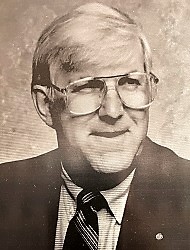
Greenhills' AD Seng Honored Nationally for Contributions to Women in Coaching
By
Geoff Kimmerly
MHSAA.com senior editor
December 14, 2022
Ann Arbor Greenhills athletic director Meg Seng – also a member of the MHSAA Representative Council – has been named the first Peg Pennepacker Paving the Way Award winner by the Global Community of Women in High School Sports.
Seng is in her 38th year of service to schools and athletes, and has served as Greenhills athletic director since 2003 after previously teaching and/or coaching there and Ann Arbor Huron.
The honor from GCWHSS recognizes Seng’s contribution to encouraging female athletes to become coaches. In 2001, Seng co-founded The Academy of Sports Leadership, a non-profit organization that provides education and training for women interested in becoming coaches.
In 2021, Seng received a Citation from the National Federation of State High School Associations (NFHS). She also has received the MHSAA’s Women In Sports Leadership Award and Allen W. Bush Award, as well as the Jack Johnson Dedicated Service Award from the Michigan Interscholastic Athletic Administrators Association (MIAAA). Seng was named state Athletic Director of the Year by the MIAAA and Michigan High School Coaches Association (MHSCA) during the 2021-22 school year.
Seng received her Pennepacker Award during the recent National Athletic Directors Conference in Nashville, Tenn. Her Greenhills athletic program also was one of two from Michigan (with Mattawan) to receive a Quality Program Award from the National Interscholastic Athletic Administrators Association (NIAAA).
Pennepacker, from Pennsylvania, is an NIAAA Leadership Training Course national faculty member and considered one of the foremost experts nationally on Title IX issues. She formerly served in education for more than 36 years and continues her service in various roles in her state and nationally. She’s received the NIAAA Distinguished Service Award and was inducted into the NIAAA Hall of Fame on Tuesday.
***
Jack Johnson, a legendary swim coach at Dearborn and honoree with the MHSAA's Charles E. Forsythe Award in 1988, was among eight inductees into the NIAAA Hall of Fame.
 Johnson served as a teacher, athletic director and coach at Dearborn High School for nearly 40 years, leading the boys swimming & diving team to Lower Peninsula Class A championships in 1971, 1972 and 1974 and being named state Athletic Director of the Year by the Michigan Interscholastic Athletic Administrators Association (MIAAA) in 1983.
Johnson served as a teacher, athletic director and coach at Dearborn High School for nearly 40 years, leading the boys swimming & diving team to Lower Peninsula Class A championships in 1971, 1972 and 1974 and being named state Athletic Director of the Year by the Michigan Interscholastic Athletic Administrators Association (MIAAA) in 1983.
He also received an NFHS Citation in 1984 and was inducted into the Michigan High School Coaches Association Hall of Fame that same year; the MHSCA Hall of Fame reports that Johnson won 13 league championships over 17 years and coached 25 high school All-Americans.
Johnson, who died at age 90 in 2019, also served on the MHSAA Representative council, and the MIAAA Distinguished Service Award is named for him.

Driving Force that Needs to be Re-Routed
November 30, 2015
The MHSAA's Fall issue of benchmarks examined the transfer regulation, including the reasoning behind recent changes. This is the first of four installments that will appear on Second Half this week.
By John E. “Jack” Roberts
MHSAA Executive Director
During the 2014-15 school year, over the course of 12 meetings, the MHSAA Executive Committee considered 467 requests of member schools to waive Handbook rules. Of those, 300 requests were to waive some aspect of the Transfer Regulation.
So an issue of benchmarks which examines the MHSAA transfer rule is well justified. Perhaps overdue.
Over the years, families have moved about and split apart with increasing frequency. Public policymakers have adopted laws that encourage students to move, and to keep moving, until they find a school more to their liking or they graduate, whichever occurs first.
Meanwhile, the profile of competitive sports has blossomed to the point of becoming overblown, the influence of non-school sports has spread and the delusion of college athletic scholarships has infected the brains of more students and parents. All of which increase the likelihood that students will move as much or more often for athletics as for academics and all other factors combined.
Add to this that the United States, and Michigan in particular, has become the favored landing zone for foreign exchange students, and the result is the need for a transfer rule that is like a great outside linebacker – tough, quick and nimble. We need a rule that is tough, acts fast and can keep changing to keep up with the times.

